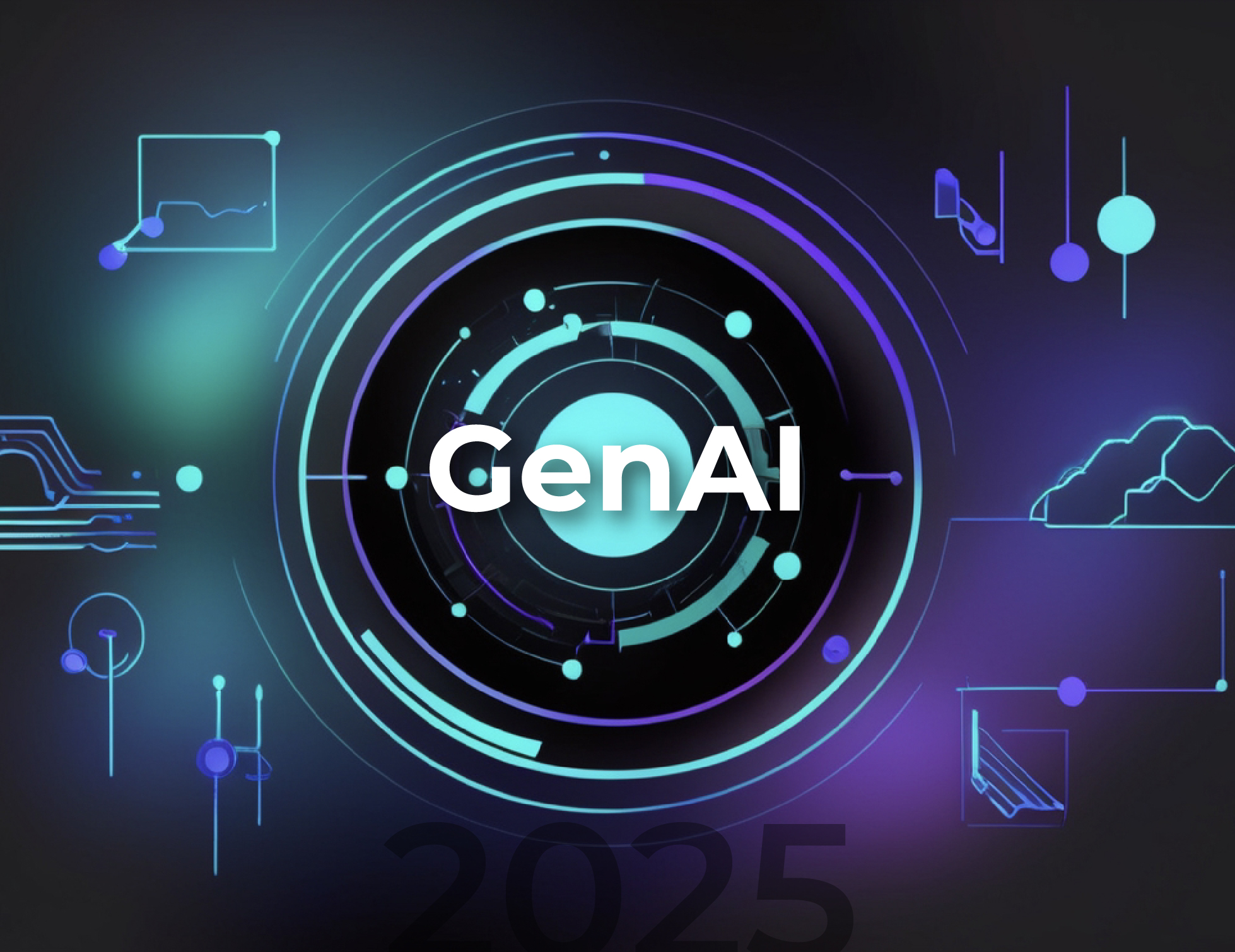Gen AI Will Shape The Future In 2025

The field of Generative Artificial Intelligence (Gen AI) drives revolutionary changes throughout creative production and automated systems development. Operatives will not find static improvements with Gen AI during 2025 because this technology fundamentally changes how we engage with technology at an industrial scale. The article explores Gen AI's transformative power while examining its business effects and performance challenges for technology steering and firm operations.
Enhanced Personalization: Revolutionizing User Experiences
Gen AI will reshape personalization through 2025 by delivering highly tailored experiences that exceed past levels of individualized customer preferences.
Nuanced Interactions
Gen AI models demonstrate unprecedented precision by both understanding and predicting user behavior. Through advanced algorithm-operated data analysis, Gen AI delivers personalized content together with necessary recommendations that match individual requirements.
Use Cases Across Industries
Marketing: Law-based personal ad marketing technology creates tailored messaging that anticipates a customer's reaction and interests.
Customer Service: AI chatbots designed to mimic human communication help users solve their problems at a higher speed and with a greater success rate.
E-Learning: Learning modules integrate adaptive features to match learning materials according to student learning speeds together with individual learning methods.
User engagement adopts personalization as the essential technique beyond convenient offerings in online experiences.
Integration with Other Technologies
The combination of Gen AI technology and advanced approaches creates intelligent integrated systems that transform the way different components connect.
IoT and Gen AI
The Internet of Things (IoT) forms a connection with General Artificial Intelligence to develop intelligent environments.
Smart Homes: The automatic nature of these devices makes them learn user behaviors for providing complete self-sufficient operation.
Industrial IoT: Through predictive maintenance systems driven by artificial intelligence machines run more efficiently thus leading to reduced operational downtime.
Augmented Reality (AR) and Gen AI
The integration of AR technology systems with General Artificial Intelligence delivers unprecedented improvements in user interactions.
Retail: AI has been integrated into AR virtual fitting rooms which use customer preferences to suggest product recommendations.
Gaming: Player experiences in dynamic immersive worlds become one-of-a-kind because systems generate them fresh each time.
The combination of Gen AI systems with IoT technologies and AR platforms powers novel innovations throughout manufacturing industries as well as entertainment fields.
New Applications in Business
Genetic Artificial Intelligence pushes beyond text generation and creative writing because it powers essential business processes.
Content Creation
- Autonomously controlled creative production stands as the leading technological development.
- Video Production: AI tools produce professional-quality video materials that have both written scripts alongside animated elements and recorded voiceovers.
- Graphic Design: AI design algorithms help businesses create logos while generating promotional artwork and brand expressions.
- Text Generation: From blogs to press releases, AI produces SEO-optimized content faster and more efficiently.
Software Development
- Developer success in complex coding issues results from Gen AI implementation.
- Code Generation: The code-completion system GitHub Copilot produces exact code fragments that users can use.
- Debugging: The system examines code repositories to detect mistakes and generate potential correction suggestions.
Healthcare
- Drug Discovery: Through the prediction of chemical reactions AI models accelerate the process of drug discovery.
- Diagnostics: Disease identification occurs earlier and more accurately through improved medical picture analysis systems.
Ethical Considerations
More attention needs to be paid to ethical challenges presented by Gen AI expansion according to technology leadership standards.
Bias in AI Models
When AI systems work with training data they frequently obtain hidden biases which produce unequal and prejudiced results. môi$is correction necessitates datasets that reflect multiple perspectives alongside evaluations.
Data Privacy
User privacy stands as a fundamental requirement when technology heavily depends on user data. All businesses need to be compliant with data protection standards from around the world including GDPR.
Intellectual Property
Articles and content created with AI systems create dilemmas regarding who controls ownership rights and intellectual property contributions. Creating precise regulations stands as fundamental to securing creator rights together with their user rights.
Businesses that take prompt action to address ethical concerns will both use Generative Artificial Intelligence responsibly and establish trust with customers.
Conclusion
Generative AI experienced remarkable innovation while releasing transformative capabilities during its 2025 course. Gen AI creates ongoing innovations by enabling hyper-individualized interface designs while better connecting with AR solutions and IoT technologies. The advancements create ethical responsibilities businesses must handle with caution.
Ethical Gen AI development alongside its full potential acceptance will guide technological leaders to speed innovation while shaping future AI practices responsibly. Companies should start investing in Gen AI because we are currently building the near future.
